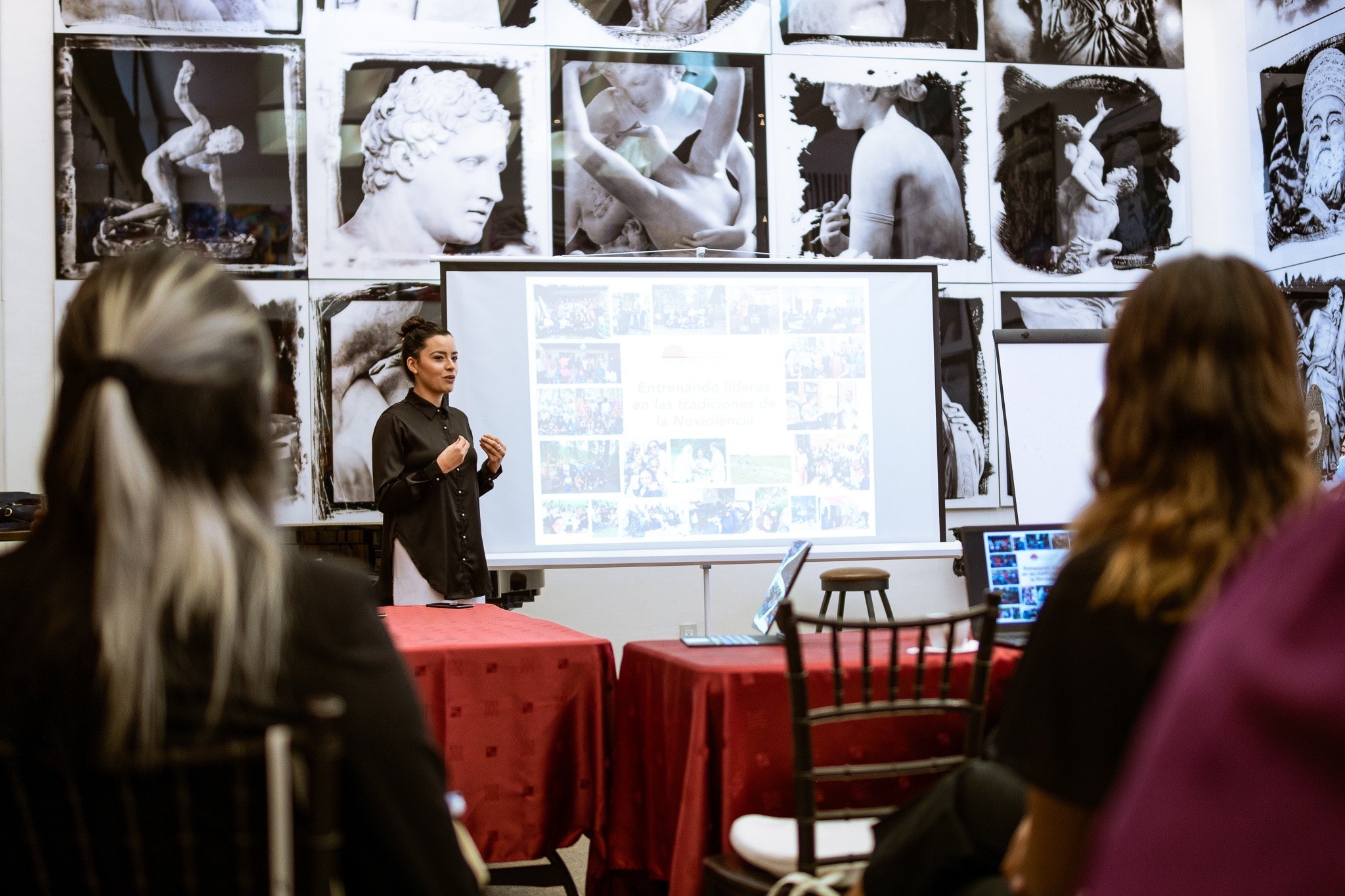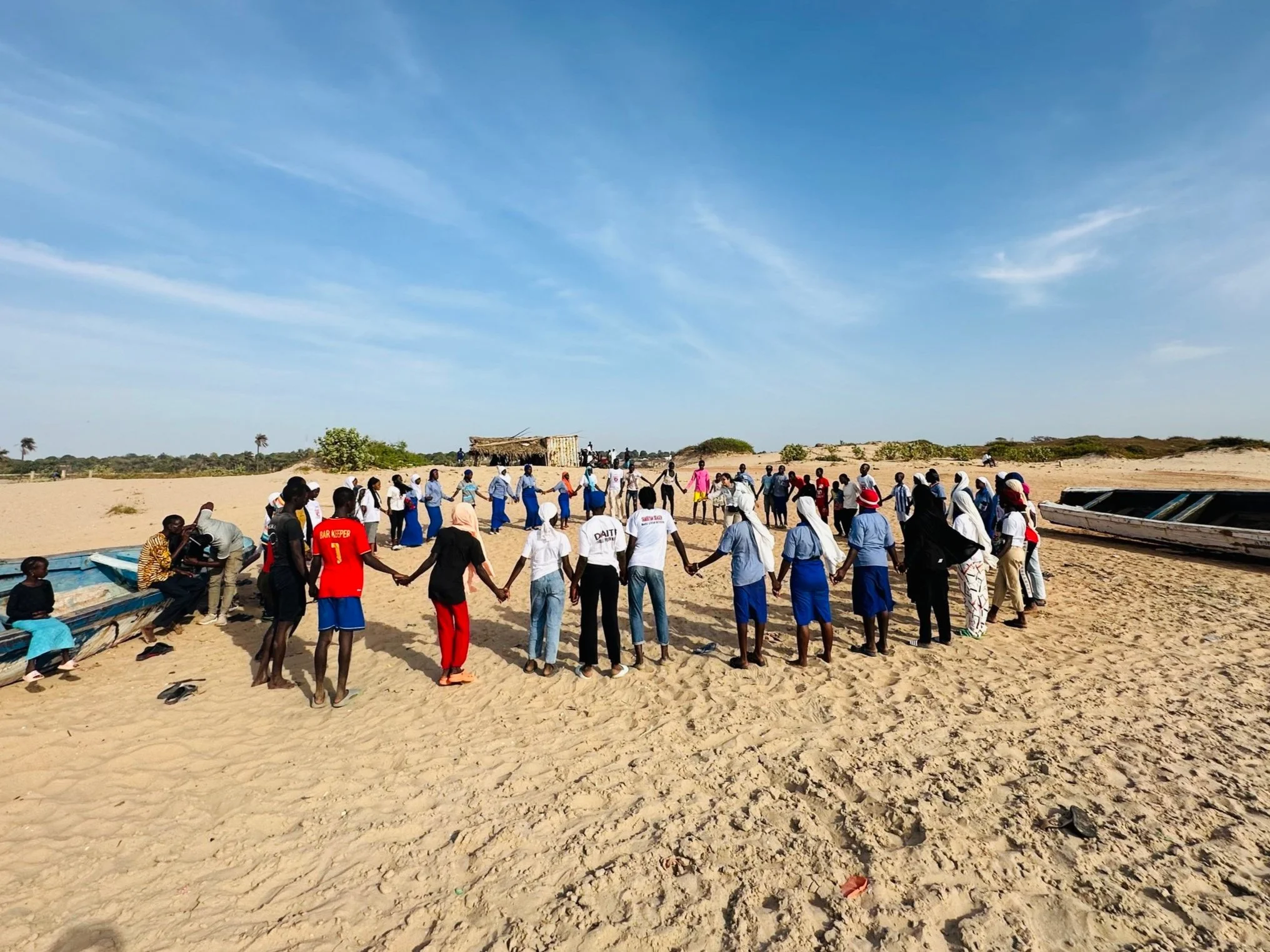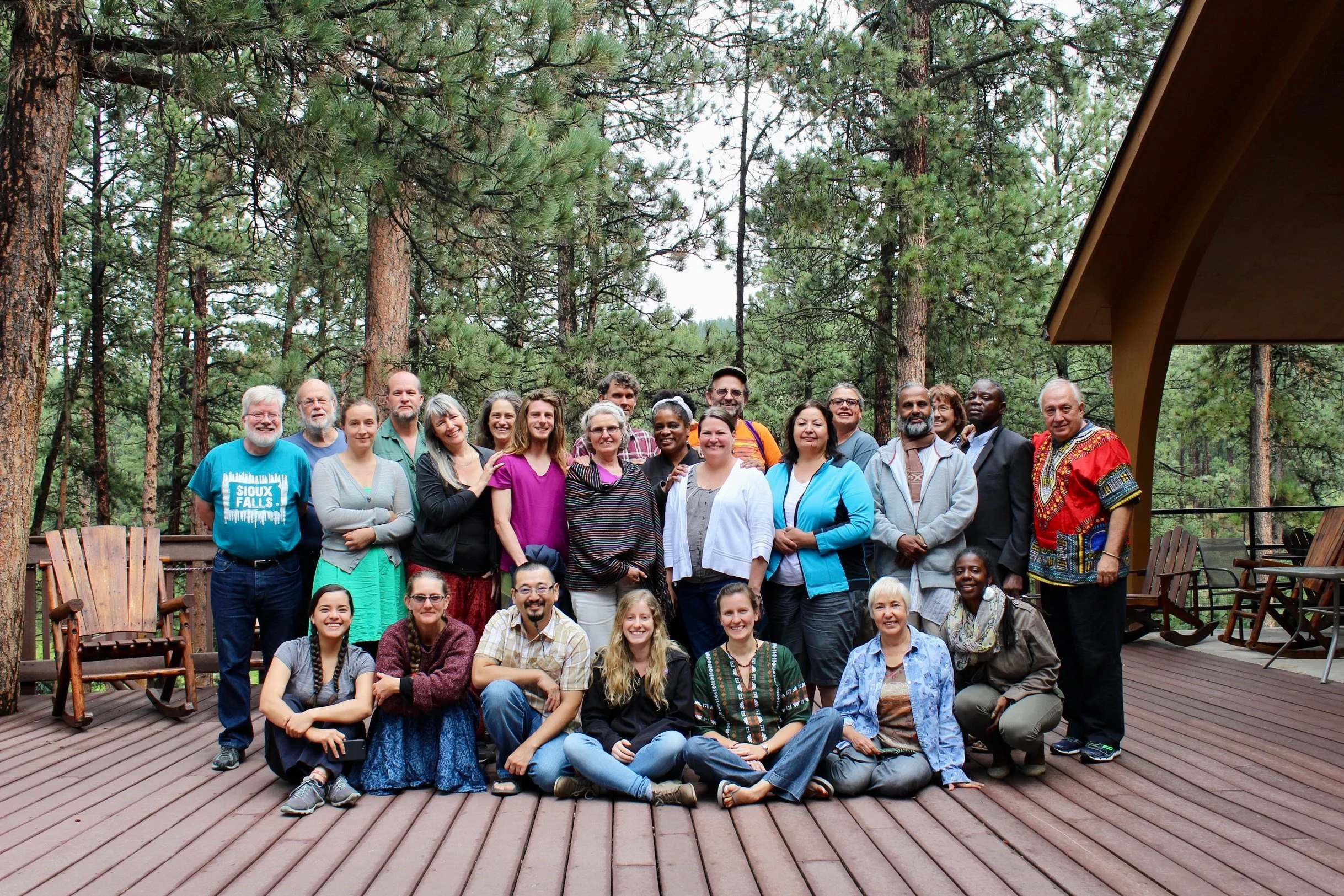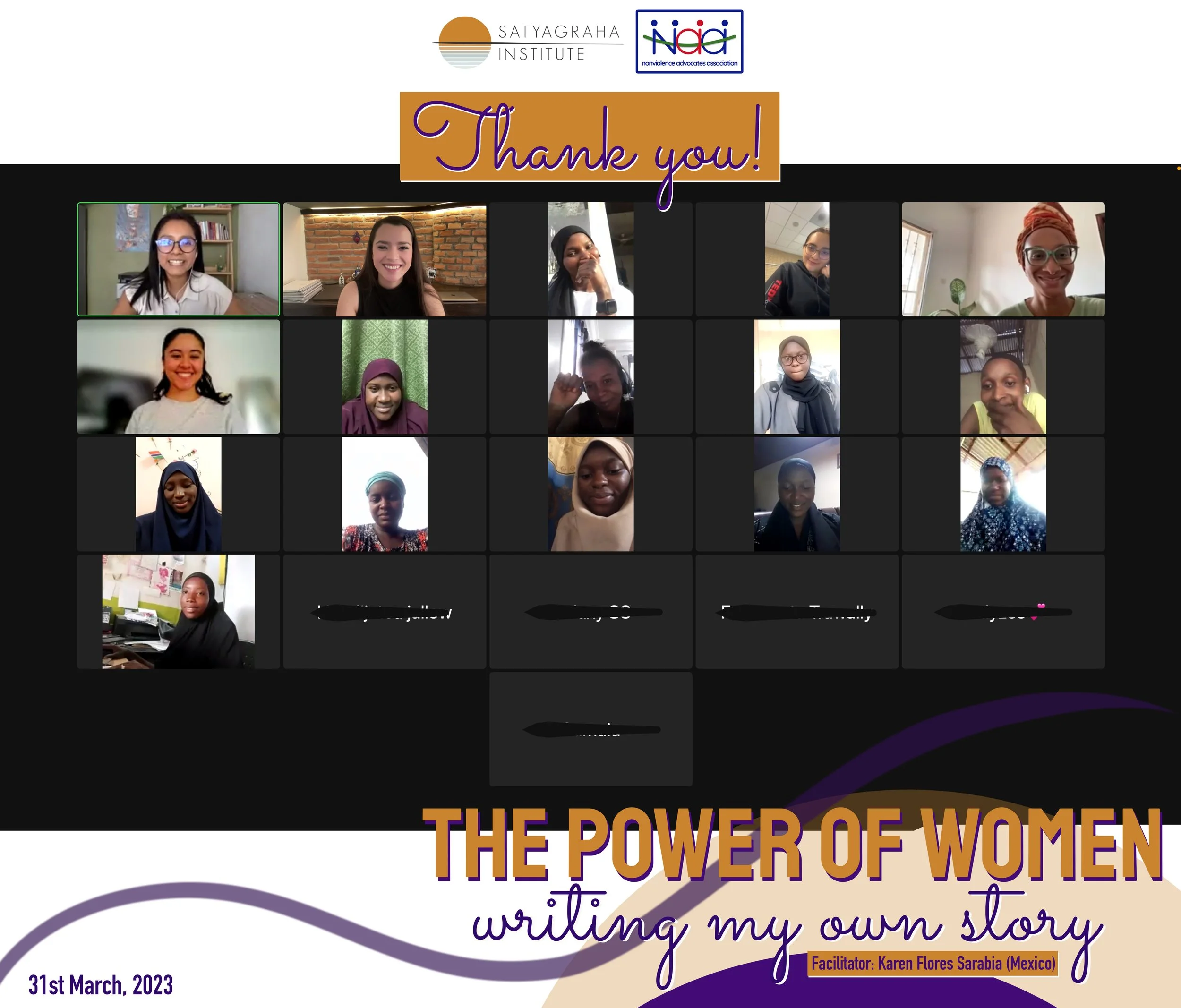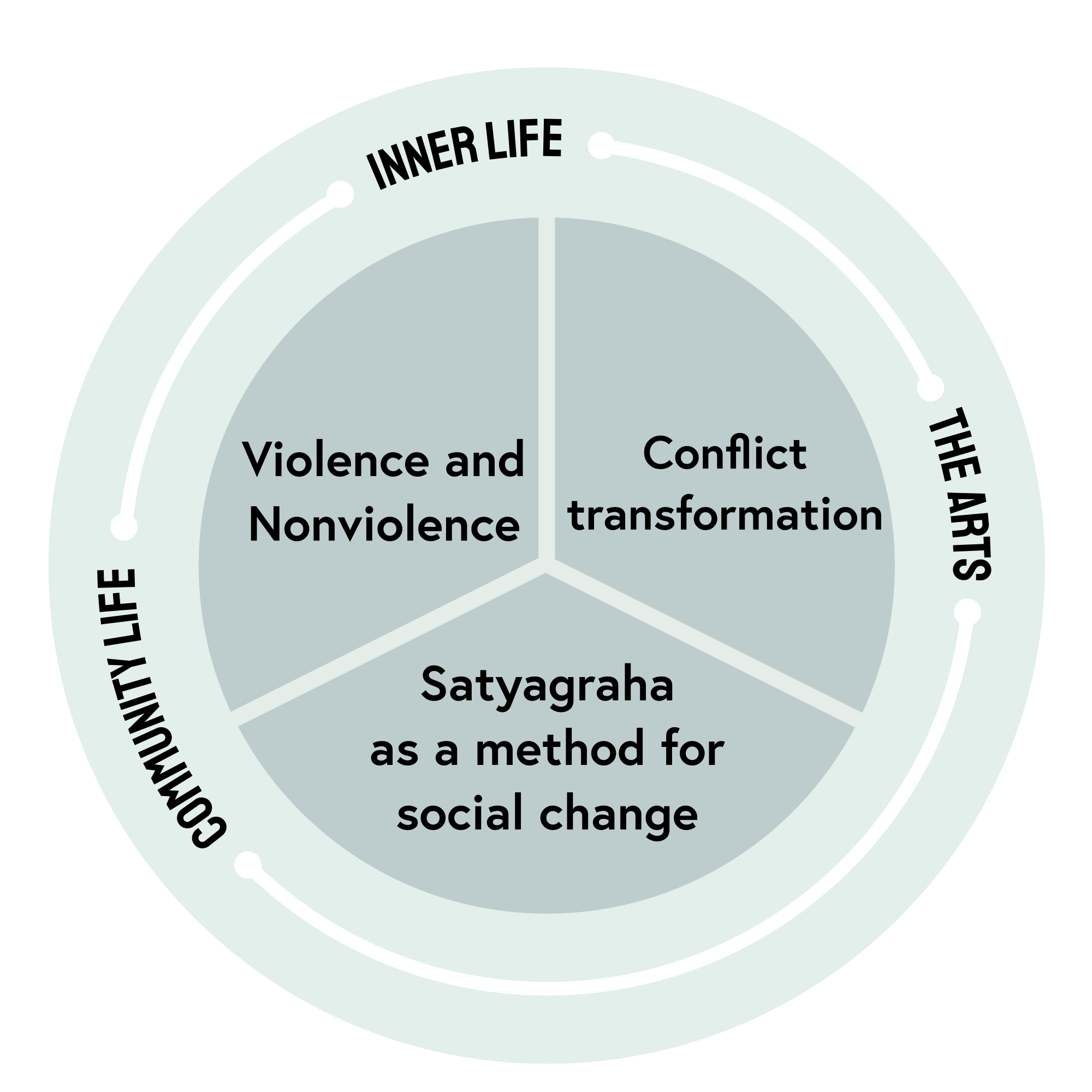our purpose and work
Satyagraha Institute works to promote the understanding and practice of satyagraha as a way of life and a method for social change.
workshops and partnerships
Creating spaces for dialogue, experiential learning, and skill-building, equipping participants to address global challenges with courage and understanding.
our leadership training
Through a combination of theory, practice, and experiential learning, participants are equipped with the skills to navigate conflict, foster collaboration, and inspire nonviolent action in their communities and beyond.
Growth and development
Mentorship, networking and online training: deepen your commitment to Nonviolence, stay engaged in the evolving opportunities of social change and empower yourself to lead with resilience and impact.
core curriculum
The centerpiece of our programs is a course of study focusing on the theory and practice of satyagraha, including the topics of Violence and Nonviolence, Conflict Transformation and Satyagraha as a Method for Social Change. Additionally, we focus on three cross-cutting themes: Inner Life, Community Life and The Arts.
Several resident faculty and a variety of visiting resource people guide our exploration of theory, personal lives and practices, satyagraha in action, successes, failures, and lessons learned. The format includes instructor presentations, group discussion and activities.
-
This course explores the many forms of violence –direct, structural, and cultural– and examines how they operate within societies and within ourselves. Participants study the philosophical and practical foundations of Nonviolence, drawing on the teachings of leaders such as Mohandas Gandhi, Martin Luther King Jr., and contemporary movements. Through dialogue and analysis, the course challenges assumptions about power and resistance while fostering the capacity to respond to injustice with courage, compassion, and strategic nonviolent action.
-
Rather than suppressing or avoiding conflict, this course views it as an opportunity for growth, relationship-building, and systemic change. Participants develop a deep understanding of conflict dynamics at personal, communal, and structural levels, and learn tools to navigate conflict constructively. Grounded in the work of scholars and practitioners like John Paul Lederach, the course emphasizes listening, empathy, and creative problem-solving as pathways to transformation.
-
This course introduces satyagraha –Gandhi’s philosophy and method of nonviolent resistance–as a disciplined and transformative force for social change. Participants explore the spiritual and ethical roots of satyagraha, its historical applications, and its relevance today. The approach emphasizes clarity, courage, and empathy as powerful drivers that can engage communities, influence systems, and promote lasting change without reinforcing cycles of harm.
-
The practice of satyagraha requires attention to the Inner Life. As Gandhi, King, and many others have demonstrated in their words and actions, the practitioner must commit to investigating, challenging, and training their heart. The training will encourage attention to the Inner Life in several ways:
Exploration of how different spiritual traditions provide foundations for Nonviolence.
Ample time for rest, personal reflection, and individual spiritual practice.
Regular opportunities for group meditation, as well as instruction on training the mind to be more at ease and attentive.
Time for discussion of various topics related to the Inner Life (such as developing our ability to offer patience, monitoring our intentions, and preparing ourselves to enter difficult situations).
-
An important goal of Satyagraha Institute is to strengthen the community of practitioners, teachers, and future leaders who are committed to experimenting with satyagraha. We expect that important relationships will develop in the course of our living and studying together.
Additionally, the program emphasizes two aspects of community life that are integral to the work of satyagraha. First, all participants share in "bread labor": simple manual labor to support the basic needs of the community.
Second, sustainability is an ongoing reference point during our time together. As we work for social change, we regularly assess the long-term impact of our daily living practices.
-
The training explores –in theory and in practice– how the Arts interact with satyagraha in the work of social change. Artists have the power to help us reconsider how we might interpret challenges, approach conflicts, and engage uncertainties. The Arts can help us shift perspective and see new options. The Arts can inspire bold action. These are all dynamics that can support the work of social change.
